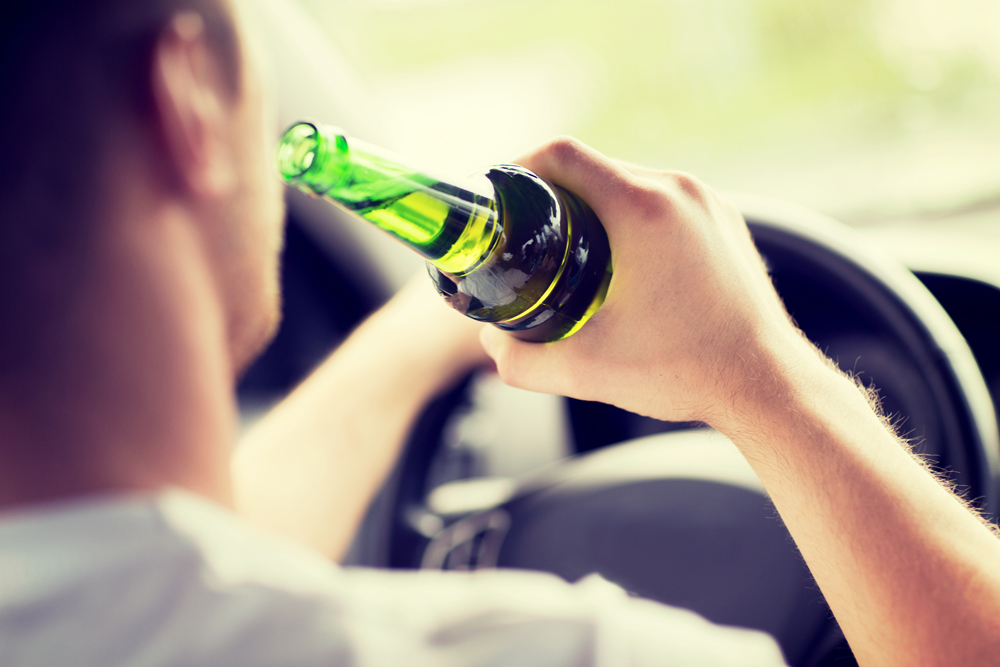Why Is Driving While Intoxicated illegal?
Driving while intoxicated occurs when the driver’s ability to operate the motor vehicle is impaired due to alcohol consumption or drug use. Individuals are curious as to why driving under the influence is illegal, because some individuals feel that they can drive in a safe manner even while under the influence.
However, most people don’t have complete control over their actions while under the influence. Driving a vehicle that weighs several thousand pounds requires attentiveness and quick reaction times to avoid minor or severe accidents. During impaired driving, people cannot react or give the needed attention to avoid such accidents.
Statistics showing the effects of driving while intoxicated illustrate the problem across the country. In the United States, about 37 people die as a result of driving while ability impaired as related to alcohol. Drunk driving laws seek to curtail the effects of these horrific statistics.
State governments have stepped in to protect the health and safety of their citizens. Laws punishing people for driving under the influence were created to act as a deterrent to protect people on the roads.
What Is Considered Driving While Intoxicated?
Driving while intoxicated occurs when a person is under alcohol impairment or drugs (recreational, pharmaceuticals, or illegal drugs) that impair motor function.
Driving under the influence concerning alcohol varies from state to state. Usually, there are blood alcohol limits that determine whether you are legally intoxicated or not. For example, in Missouri, “a DWI is defined as driving with a blood alcohol concentration (BAC) of 0.08% or more. 0.04% or more in commercial motor vehicles. 0.02% or more, if you are a minor [underage drinking].” As you can see, driving while intoxicated has many variables depending on the state, age of the person intoxicated, and vehicle being driven.
The blood alcohol levels are determined by using a breathalyzer or taking blood samples. A person can still be considered intoxicated, but under the legally set limit they aren’t. It is important to note that driving under the influence has a deeper meaning than taken at face value. Each state’s set limit will determine whether the person is actually driving while intoxicated.
What Are The Penalties For A DWI in Missouri?
Penalties across the United States for DUIs or DWIs are pretty steep. Since drunk driving accounts for one death every 50 minutes each day, it makes sense while legislation trends are moving towards increased penalties for drunk drivers. If you’ve been arrested for a DWI in Missouri, the penalties you face may look similar to those listed below. However, each case varies based on the circumstances surrounding the case and the individual.
- 1st Offense – If it’s your first time being arrested for a DWI in Missouri you could face up to six months in jail, $1,00 in fines, your license will be taken for 30 days with a 60 day restricted license, and you could possibly have an ignition interlock device attached to your vehicle.
- 2nd Offense – Your second offense could land you in jail for up to one year and up to $2,000 in fines. You will also have your driver’s license revoked for up to 5 years and an ignition interlock device (IID) will be fitted to your vehicle for a minimum of six months.
- 3rd Offense – If you are caught a third time Driving While Intoxicated you will face up to 4 years in jail and have your license will be revoked for up to 10 years. You could face fines up to $10,000 and your vehicle will have an IID for at least six months.
What Does Aggravated Driving While Intoxicated mean?
Aggravated driving under the influence can come in a few circumstances. It occurs when a person is driving with a suspended or revoked license or if the blood alcohol content of the person is much higher than the legal limit. For example, the legal limit would be at 0.08% and aggravated driving limit would be 0.18%. The punishment that follows aggravated driving under the influence are severe as compared to a normal driving under the influence. An individual’s DUI conviction will also depend on their previous driving record and whether they are commercial drivers or not.
What defines excessive BAC?
Having a Blood Alcohol Concentration at the legal limit of .08% or above is considered excessive BAC. Missouri also has certain restriction on drivers under the age of 21 and commercial vehicle drivers:
- Commercial vehicle drivers are considered to have excessive BAC if they are found with .04% alcohol in their blood.
- Drivers under the age of 21 will be charged with a DWI if their BAC is at least .02%
Also, there are other ways to be charged with aggravated driving under the influence. Some of these ways are driving with a minor while intoxicated, driving at high speeds, or being a repeat player with multiple DUI charges. When it comes to being a repeat player, states vary on how many prior convictions will equal aggravated driving while under the influence.
Some states are as low as two prior convictions for driving under the influence, while other states are as many as four or five. Being convicted of aggravated driving under the influence may lead to years of jail time, license suspension, probation, and large fines. The situations when aggravated driving while intoxicated occurs usually involve a complete disregard of the law. This is one reason that severe punishments are attached, because each situation shows recklessness or a complete lack of concern for actions of the intoxicated. In many states, the charge is considered a felony and not a misdemeanor.
The Long Term Effects of a DWI Conviction
Being convicted of a DWI not only affects you during the trial and sentencing portion of your conviction, but it also has some heavy repercussions afterwards.
Once you have been convicted of Driving While Intoxicated and regained your driving privileges you will most likely need SR-22 insurance, which automatically doubles or even triples your insurance premiums.
Also, if this was your second or third conviction, in the state of Missouri you will be court ordered to have an IID installed in your vehicle for at least six months. This requires you to blow into a device before your vehicle can even be turned on. You are also required to pay for the device and installation and any other monthly fees that may be required for ongoing monitoring.
Facing a Drunk Driving Charge? Call A Professional
Bottom line, being convicted of a DWI in Missouri is a time consuming and expensive process that can affect the rest of your life. If you’ve been convicted of a DWI or DUI, you need to speak to a private attorney who specializes in DWI cases. A knowledgeable and local lawyer is in your best defense. They can assist you in understanding Missouri DWI laws, help you to mitigate a plea bargain, and any other advice or assistance you may need through the entire process both during and after your trial.
Call us today to set up your free consultation.
